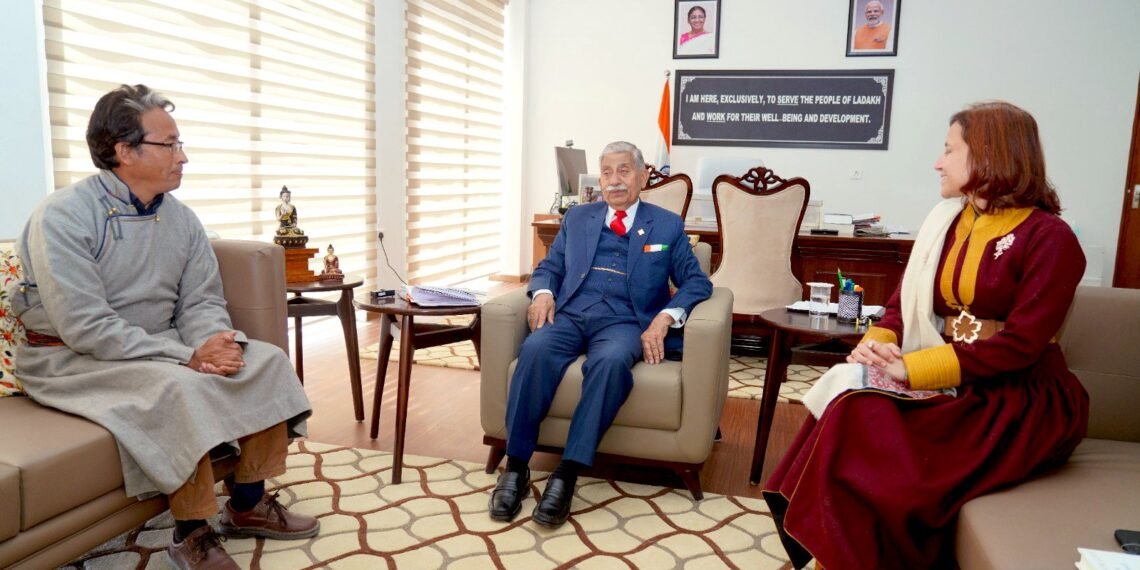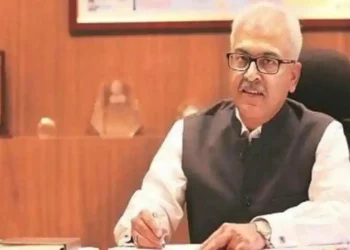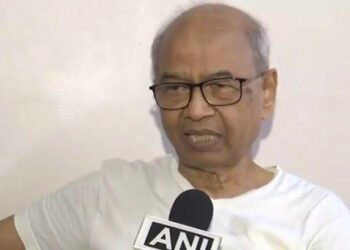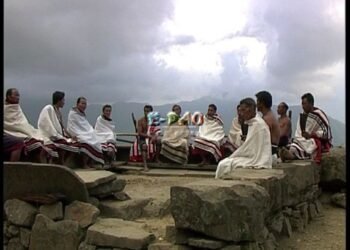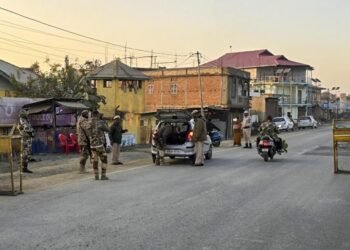Retired generals Bakshi and Panag warn that alienating Ladakh’s loyal citizens could endanger national security and erode trust in the government.
By Navin Upadhyay
New Delhi, September 30, 2025 – In a move that has ignited a firestorm of condemnation across India’s civil society, military veterans, and bureaucratic circles, the arrest of renowned climate activist and education reformer Sonam Wangchuk under the draconian National Security Act (NSA) has exposed deep fissures in the government’s handling of Ladakh’s long-simmering grievances.
Detained on September 26 and swiftly transferred to Jodhpur Central Jail in Rajasthan, Wangchuk – a man celebrated for his Gandhian non-violence and innovative contributions to India’s border defenses – is now painted as an “anti-national” instigator. But voices from the highest echelons of retired officialdom are rising in unison, branding the action not just misguided, but a stain that will linger on Prime Minister Narendra Modi’s administration for generations.
The arrest comes in the shadow of Ladakh’s worst violence in decades, triggered on September 24 when protests demanding statehood and inclusion under the Sixth Schedule of the Constitution spiraled into chaos. Four civilians lay dead, over 80 were injured – including 17 Central Reserve Police Force (CRPF) personnel – and government buildings, including a Bharatiya Janata Party (BJP) office, were torched amid clashes with security forces. Mobile internet was suspended in Leh, a curfew clamped down, and the air thick with tear gas.
READ: Talks Collapse as Leh Apex Body Protests Wangchuk Arrest, Deaths
The Union Home Ministry wasted no time in pointing fingers at Wangchuk, accusing him of “provocative speeches” referencing the Arab Spring and Nepal’s “Gen Z protests,” which allegedly fueled the mob. His NGO, the Students’ Educational and Cultural Movement of Ladakh (SECMOL), had its Foreign Contribution Regulation Act (FCRA) license revoked hours earlier, with allegations of financial irregularities and undeclared foreign funds totaling over Rs 8 crore swirling like monsoon clouds.
READ:
Which anti-national commands love and respect and has audience with Generals and Core Commanders of the Indian Army? Which anti-national builds solar homes so that jawans and officers stay warm and fight effectively?#SonamWangchuk #indianarmy pic.twitter.com/VHffRLDbRN
— Gitanjali J Angmo (@GitanjaliAngmo) September 30, 2025
Yet, as Ladakh’s fragile Himalayan ecosystem – a region Wangchuk has tirelessly worked to protect – reels from the fallout, a chorus of condemnation is building. Retired generals, bureaucrats, and civil society leaders who once served the nation with distinction are now turning their ire on the very government they helped build. Their words, laced with betrayal and urgency, underscore a growing belief that the Centre’s heavy-handed tactics have not quelled dissent but amplified it.
With the Leh Apex Body (LAB) withdrawing from stalled talks and criticism pouring in from all quarters, analysts predict the Modi government will soon face the bitter irony of releasing Wangchuk – the man it vilified – and pleading for his return to the negotiating table.
A Patriot in Chains: Wangchuk’s Legacy Under Siege
Sonam Wangchuk, 59, is no stranger to sacrifice. The engineer-turned-activist, whose life inspired Aamir Khan’s character in the 2009 blockbuster 3 Idiots, has revolutionized education in Ladakh through SECMOL, a solar-powered campus that operates without fossil fuels.
His innovations extend to the frontlines: he designed “solar homes” – insulated tents that keep Indian Army jawans warm in sub-zero temperatures, enabling them to “fight effectively” against adversaries along the China border.
In 2018, he received the prestigious Ramon Magsaysay Award for sustainable solutions like the “Ice Stupa” – artificial glaciers combating water scarcity in the high desert.
READ: Ladakh Students to MHA: Ensure Fair Probe, Free Wangchuk
For five years, Wangchuk has led a non-violent movement demanding constitutional safeguards for Ladakh, stripped of its autonomy in 2019 when the BJP-led government bifurcated Jammu and Kashmir. Promises of Sixth Schedule protections – granting tribal areas legislative powers – and full statehood have vanished, leaving locals fearing land grabs by corporate interests and environmental ruin from unchecked mining and infrastructure projects.
His latest fast, begun on September 10 at Leh’s Shaheed Park, aimed to pressure the Home Ministry into “result-oriented” dialogue. It ended abruptly on September 24 when two fellow strikers were hospitalized, sparking the youth-led unrest authorities now pin on him.
Speaking defiantly before his arrest, Wangchuk anticipated the crackdown. “I am ready for that,” he told a TV channel on September 25. “But Sonam Wangchuk in jail may cause them more problems than a free Sonam Wangchuk.”
Now confined in Jodhpur’s high-security jail – notorious for housing terrorists and high-profile convicts – Wangchuk remains under 24/7 CCTV surveillance, with his health closely monitored amid concerns over his recent fast.
Wife’s Heart-Wrenching Defense: “Which Anti-National Builds Solar Homes for Our Jawans?”
At the heart of this tragedy is Gitanjali Angmo, Wangchuk’s wife and co-founder of the Himalayan Institute of Alternatives Ladakh (HIAL). In a viral tweet, Angmo dismantled the “anti-national” label with raw emotion and unassailable logic.
“Which anti-national commands love and respect and has audience with Generals and Core Commanders of the Indian Army?” she wrote on X. “Which anti-national builds solar homes so that jawans and officers stay warm and fight effectively?”
Angmo’s words have resonated deeply in military circles, where Wangchuk’s contributions to soldier welfare are legendary.
In interviews with PTI, she rejected allegations of Pakistan links floated by Ladakh DGP S.D. Singh Jamwal, who claimed Wangchuk was in contact with a Pakistani intelligence operative and attended events in Islamabad and Dhaka. “Our visits were purely professional, focused on climate issues,” Angmo said. “Sonam praised PM Modi at a conference in Pakistan this February. If he praised our Prime Minister across the border, how is that anti-national?”
She challenged the NSA invocation, insisting her husband is “a Gandhian, not a threat.” The “witch-hunt,” she alleged, began four years ago with Intelligence Bureau visits after his first fast. “They revoked FCRA when SECMOL had only Rs 4 lakh in foreign funds, all used transparently. This is about silencing Ladakh’s voice.”
Voices of Condemnation
While condemnation from the opposition parties and the likes of Rahul Gandhi and Omar Abdullah are on expected lines, Sonam Wangchuk’s arrest has drawn sharp rebukes from across the spectrum, including from unexpected quarters like retired military veterans who have long been vocal supporters of the Modi government.
Major General G.D. Bakshi (Retd.), known for his staunch pro-BJP stance and frequent defenses of the Prime Minister on social media, expressed profound distress over the violence and unrest in Ladakh in a heartfelt post on X.
“I feel a stab of pain in my heart as I see the scenes of distress and violence in Ladakh. 4 people have been killed over 70 wounded. The people of Ladakh are such simple and sweet people. Being Buddhists they are so kind-hearted. Yet they make the best mountain troopers in the world. They have laid down their lives to defend India and earned so many awards for bravery (including Ashok Chakras). I feel so distressed at any suffering in that Shangrila,” Bakshi wrote.
I feel a stab of pain in my heart as I see the scenes of distress and violence in Ladakh. 4 people have been killed over 70 wounded. The people of Ladakh are such simple and sweet people. Being Buddhists they are so kind hearted. Yet They make the best mountain troopers in the…
— Maj Gen (Dr)GD Bakshi SM,VSM(retd) (@GeneralBakshi) September 26, 2025
He urged sensitivity toward Ladakh’s grievances, noting, “Ladakh is a very vital and strategic border state. We simply can’t afford to alienate these brave and patriotic people. We must be SENSITIVE to any distress or suffering there.”
Bakshi acknowledged conspiracy theories about foreign interference but defended the locals’ demands: “I am told that the CIA playbook is being played again and NGOs are pumping money to stage a coloured revolution… Ladakhi demands are not outlandish. They want Sixth Schedule of the constitution. What is so wrong with that? The BJP had promised it. Why can’t we give it?”
He concluded with a plea: “India can’t afford to alienate them. Violence however is wrong and the LAW and order must be enforced. But we must be very sympathetic to any genuine grievances. For God’s sake we can’t afford to be insensitive in such a vital border state.”
Lieutenant General H.S. Panag (Retd.), a former Northern Army Commander, reinforced the warning, stating on X: “The nation will pay a heavy price for alienating the most loyal and patriotic people amongst us all.”
Even from bureaucratic quarters comes unyielding criticism. Nirupama Subramaniam, a retired Indian Foreign Service (IFS) officer and former ambassador, issued a scathing open letter on LinkedIn, circulated widely in Delhi’s policy circles. “As a bureaucrat who served this nation through crises, I am appalled by the Centre’s handling of Ladakh,” Subramaniam stated.
“Sonam Wangchuk embodies the Gandhian ideal we claim to uphold, yet we chain him for speaking truth to power. This is not governance; it is suppression. The broken promises on Sixth Schedule have fueled this unrest – arresting the messenger won’t heal the wound. The government will rue this day when history judges it,” she added.
Adding to the chorus from the tech world, Hotmail co-founder Sabeer Bhatia – a prominent entrepreneur and vocal critic of authoritarian overreach – wrote on X: “Sonam Wangchuk – 400+ patents, solar tents for the army, schools for kids left behind, ice stupas to store water… and now he’s branded a ‘terrorist.’ Has the BJP completely lost the plot? #SaveLadakh #SonamWangchuk.”
Bhatia’s follow-up post offered a powerful word of caution: “Let the garba dancers dance, cricket watchers watch and thinkers think. The problem is that thinkers are being jailed. A nation that stops thinking is as good as dead.”


